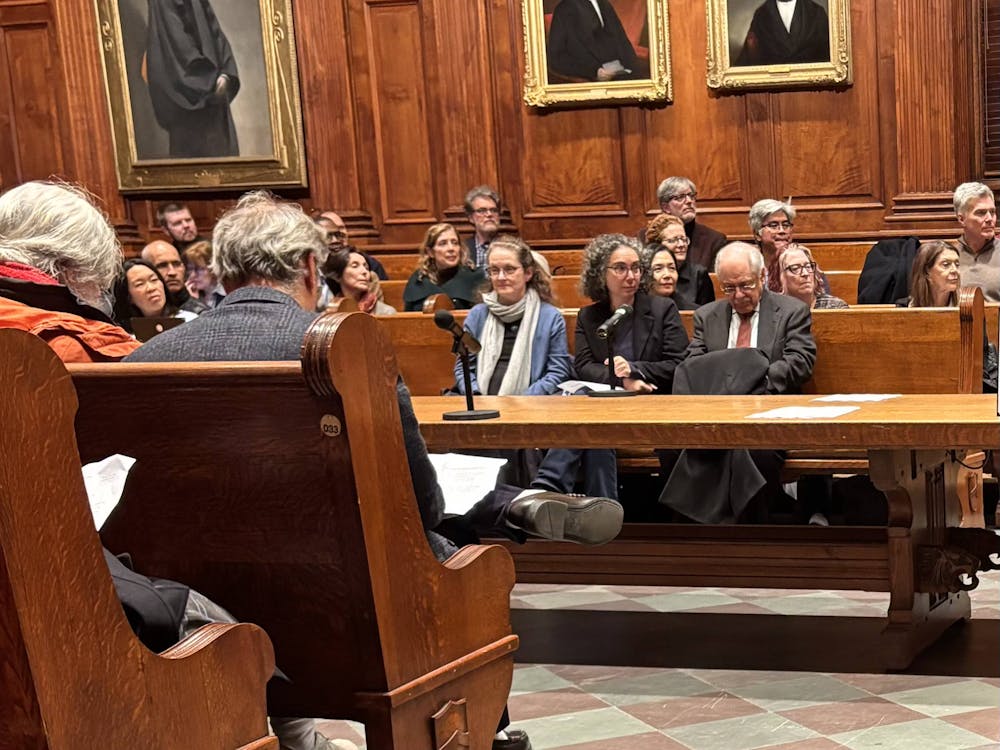In an event held on Tuesday evening in recognition of Women’s History Month, the American Whig-Cliosophic Society hosted a panel on whether women are limited in society, especially in relation to Freud’s claim that “anatomy is destiny.”
The panelists included Wilson School professor Nannerl Keohane, Italian professor Gaetana Marrone-Puglia, Director of Student Life for Butler College Alexis Andres and Women’s Center director Amada Sandoval.
Andres began the discussion by explaining the research she conducted for her dissertation on the concept of effortless perfection for women at the University of Virginia, which was based on a survey conducted by Keohane at the Women’s Initiative Steering Committee at Duke University.
She shared responses from students she interviewed who said that women felt pressure to do well in school, participate in multiple extracurricular activities and maintain a nice body but never show their exhaustion or stress.
Sandoval added to this by discussing the double standard women face in terms of personalities and body issues, saying that women are constantly scrutinized on the basis of their looks and behavior.
“This energy that so many people — a growing number of men but especially so many women, so many girls — spend on policing their own bodies and policing the bodies of other women is just a waste,” Sandoval said.
Marrone-Puglia discussed her personal story of how she came to work at the University in 2001. Colleagues at other institutions told her that she shouldn’t apply for a job at Princeton because she wouldn’t have a chance as a woman. She was offered a position at the University and began her tenure as one of the first female professors at the time. She said that she and other women at the University had to work hard in order to have their work recognized during their early years at the still mostly-male University.
“Women work hard. So do men, but I think men are more strategic at ascending and projecting their work,” Marrone-Puglia said. “I don’t think you can have it all, guys, either. How can we have it equally, fairly? That’s what we want.”
Keohane cited personal experiences and quoted from Simone de Beauvoir’s “The Second Sex,” Shulamith Firestone’s “The Dialectic of Sex” and Toril Moi’s “What Is a Woman?” in order to address the limitations of women in society.
She addressed the fact that women and men are different because men can choose when to foreground their masculinity, whereas a woman’s sexuality is almost always foregrounded against a woman’s will. As an example, she explained that a woman working as a chemist is referred to as a female chemist, while a man is just referred to as a chemist.
“That means in that sense that our anatomy keeps shadowing us, keeps stalking us and makes it hard for us to operate our life.”
Keohane then brought the conversation back to Princeton in 2009, when the Steering Committee on Undergraduate Women’s Leadership held a survey entitled “Realizing Potential” that studied how female undergraduates and recent alumnae felt about leadership.

The survey found that women do think about leadership here at Princeton as undergrads but do so differently than men.
“It’s not that women don’t want to lead, but women want to lead in positions that they think they can make a difference for a cause that they care about, where they have a position of impact, not a position with a high profile,” Keohane said.
The discussion, titled “Are Women Limited in our Society?: Women’s History Month Panel,” was held on Tuesday at 4:30 p.m. in the Whig Hall Senate Chamber.







